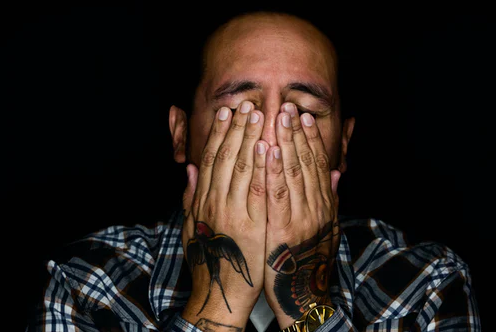Schizophrenia is a mental disorder that can cripple a normal way of living. A schizophrenic person may have delusions, hallucinations, poor concentration ability, lack of focus and antisocial behavior. The symptoms and signs of schizophrenia are very similar to those of depression, anxiety and other diseases such as Bipolar disorder and Dementia. It is quite difficult to vet out the specific signs and symptoms of schizophrenia from the rest of the diseases. This makes schizophrenia treatment and diagnosis quite difficult for doctors and experts. But there are some sure short symptoms of schizophrenia that can help friends and family to identify if a person is showing signs of schizophrenia.
Causes of Schizophrenia
There are many reasons that may lead a patient or a child to develop schizophrenia from a very young age. But none of them is a 100% causal reason and cannot be accorded as the definitive cause for developing this mental disorder. One or few or none of these factors may have contributed to a child developing schizophrenia. Most people who have schizophrenia exhibit these symptoms and can be diagnosed as early as in their 20’s. This means that causal factors can affect them even at their fetal age.
Below are some assumptions as to what may cause schizophrenia in a patient:
- Exposure to Toxic Chemicals in Fetal Stage
If a mother exposes herself to toxic gases or chemicals at work or usage of drugs or any such conditions, there is a high chance that the baby in the womb also gets affected by this and may develop biological changes that may lead to Schizophrenia.
- Biological Changes/Damage in the Brain
Damage in the Medial Temporal Lobe which is responsible for memory, Superior temporal Lobe, responsible for Auditory Information processing and Prefrontal Lobe, responsible for the functioning of the nervous system, may result in schizophrenia as they alter the way that brain and body work from an early stage.
- Genetic factors
Most parents who have a history of Schizophrenia and even may exhibit symptoms of Schizophrenia themselves may pass the disorder on to their kids.
- Auto-Immune Disease
Inflammatory conditions and auto-immune diseases may cause the brain cells to attack itself and may affect the nervous system, which may lead to symptoms of schizophrenia in patients.
- Drug Usage
Usage of drugs that have the ability to alter and control the mind may have severe impact on the patient and early abuse of drugs in kids may lead to development of Schizophrenia.
- Excessive Stress or Emotional Trauma
Working in an excessively stressful environment for long hours or having to cope with emotional stress such as the loss of a family member very early on in a patient’s life, may cause severe stress and trauma to the patient and may lead to Schizophrenia.
First Line of Treatment for Schizophrenia
The initial diagnosis and prognosis of Schizophrenia is quite difficult as the symptoms are very similar to many other mental disorders. The first line of treatment may include numerous tests to eliminate symptoms of each disorder to carefully diagnose if the patient is actually suffering from Schizophrenia.
Below are some of the few treatments suggested to schizophrenia patients:
- CT Scan and MRI
The first initial measure would be to analyse and understand what caused the disorder by conducting CT Scan and MRI of the brain.
- Psychometric Assessments
Psychometric Assessments helps the doctor understand how far the symptoms are strong and if they have affected the cognitive ability of the brain.
- Antipsychotic Drugs
Antipsychotic drugs can help the patients to reduce the symptoms and control their signs better. Although there is no cure for the disorder, continuous medical care and medication can help in controlling symptoms such as delusions, hallucinations and psychosis. It helps in improving the life quality of many of the patients by controlling episodes of delusions.
- Cognitive Behaviour Therapy
Cognitive Behaviour therapy is conducted by trained psychiatrists who can help the patients using mind controlling activities and exercises to help them overcome their triggers and barriers by themselves.
- Counselling and Group Therapy
Personal Counselling can help the patient unwind and confide in a relaxed and safe atmosphere. Group therapy can help patients to connect with others who are going through the same disorder and help each other out.
- Rehabilitation and Vocational Programs for Life Sustenance
Many training centres offer residential programs for Schizophrenia Treatment so as to help them live a quality life. They also offer vocational training for young adults who may not be able to find a regular job. Vocational training helps them sustain their lives with some income and support from the society.




